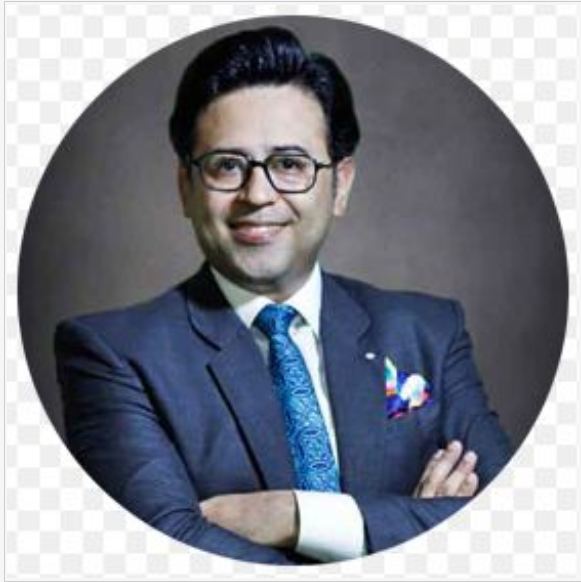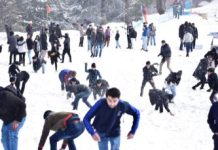Dr M Ali Hamza
Pakistan has a complex and eventful political history since its creation in 1947. This period of 76 years has witnessed numerous political changes, military interventions, democratic transitions, and Socio-economic challenges. Military has painted the larger portion of political canvas of Pakistan starting from Gen. M Ayyub Khan to Gen. Musharaf. Overall, it makes 33 years of direct military rule in the country. Thirteen years of Gen. Ayyub, eleven years of Gen. Zia-ul-Haq and nine Years of Gen. Musharaf. While military involvement in politics is generally viewed as a potential risk to democratic processes, but there have been instances where military-led political engineering has led to positive outcomes in certain contexts. To ground the argument, let’s look into few undeniable examples of countries from the recent past.
Following World War II, Japan underwent a process of political engineering led by the United States and influenced by the military. The military occupation oversaw the dismantling of militarism, the drafting of a new constitution, and the promotion of democratic reforms. This intervention transformed Japan into a stable and prosperous democracy. Likewise, in Italy, the end of World War II brought about a period of political instability. It was military along with other political actors, played a role in ensuring stability and facilitating the transition to development. Military supported the drafting of a new constitution and participated in post-war governance, contributing to the establishment of Italy that we see today.
While not a direct military intervention, the Marshall Plan, implemented after World War II, involved significant military supportto rebuild war-torn Europe. The U.S. military played a vital role in recovery and economic development of Western Europe. Moreover, following the American Civil War, the United States faced the challenge of reintegrating the Southern states and addressing racial inequality. Once again, military played a role in overseeing the reconstruction period, which aimed to rebuild the South and protect the rights of newly freed slaves.
In 1974, the Portuguese military, led by a group of progressive officers, staged the Carnation Revolution to overthrow the authoritarian Estado Novo regime. This military intervention paved the way for the establishment of a democratic system in Portugal, ending nearly five decades of dictatorship.
While not strictly a military-led political engineering, Spain’s transition to democracy following the death of dictator Francisco Franco in 1975 involved the collaboration of both military and civilian actors. Key military figures, such as King Juan Carlos I and Adolfo Suárez, played crucial roles in managing the transition process and fostering political reforms that led to the establishment of democracy in Spain.
Turkey experienced several military interventions throughout its history. While these interventions were undeniably anti-democratic, the military intervention in 1997, known as the “postmodern coup,” led to the removal of the Islamist-led government. However, it was military that facilitated a political transition that resulted in the restoration of democratic governance.
South Korea’s military played a significant role in the country’s democratization process. The military regime of Park Chung-heeimplemented economic reforms that laid the foundation for South Korea’s rapid development. Today it is democratic establishment in South Korea but credit for its progress goes to military regime.
In 1949, the Chinese Communist Party, led by Mao Zedong, successfully achieved victory in the Chinese Civil War and established the People’s Republic of China. The military played a crucial role in this process by defeating rival forces and securing the CCP’s control over the country. Supporters of the CCP view this as a positive outcome, emphasizing the creation of a unified, independent and powerful China.
The military, under the leadership of General Soedirman, played a crucial role in the Indonesian struggle for independence from Dutch colonial rule. The military, along with civilian leaders, fought against colonial forces and contributed to the establishment of an independent Indonesia in 1949. In the early years of Indonesia’s independence, the military played a role in formulating and implementing the Pancasila ideology, which became the philosophical foundation of the state. Under President Sukarno’s Guided Democracy concept, the military had significant influence in shaping policies and national development programs, with the aim of achieving political stability and economic progress.In the late 1990s, Indonesia experienced a period of political and economic turmoil, leading to widespread protests and calls for democratic reforms. The militaryonce again played a crucial role in facilitating the transition, paving the way for democratic elections and reforms.
The Malaysian military has always been involved in various development projects, particularly in rural and underdeveloped areas. For instance, the military has been engaged in infrastructure development, building roads, schools, and healthcare facilities in remote regions. These initiatives aim to improve the living conditions of local communities and promote economic growth.
Over the past 100 years, there have been several significant military and political alliances that have shaped the global landscape. The notable examples are Triple Entente (1907-1914), Allied Powers (1914-1918),Axis Powers (1936-1945), NATO (North Atlantic Treaty Organization) (1949-present), Warsaw Pact (1955-1991), SEATO (Southeast Asia Treaty Organization) (1954-1977), ANZUS (Australia, New Zealand, United States Security Treaty) (1951-present), Organization of American States (OAS) (1948-present), European Union (EU) (1957-present) etc.
Political engineering by the military is a highly controversial topic, and opinions on its positive aspects may vary. However, in situations where a country is deeply divided along political, ethnic, or religious lines, the military can serve as a unifying force. By intervening and maintaining order, the military can help prevent the escalation of violence and maintain stability during critical periods.In some cases, the military has been seen as a force that can root out corruption and address inefficiencies within the political system. By assuming a temporary or transitional role, the military can tackle systemic issues that hinder good governance and work towards creating a more accountable political structure.It is believed that military has a direct vested interest in safeguarding national security and territorial integrity. In situations where political leaders are perceived as weak or incapable of addressing security challenges, the military may feel compelled to step in to protect national interests.
Today, in context of Pakistan the extreme political polarization requires third party to engage in to pave the path and bring in unity. The history observes that such role can be performed by no one but the military elite. Yes, the military interventions should ideally be temporary and transitional, with a clear plan for the restoration of civilian governance.












